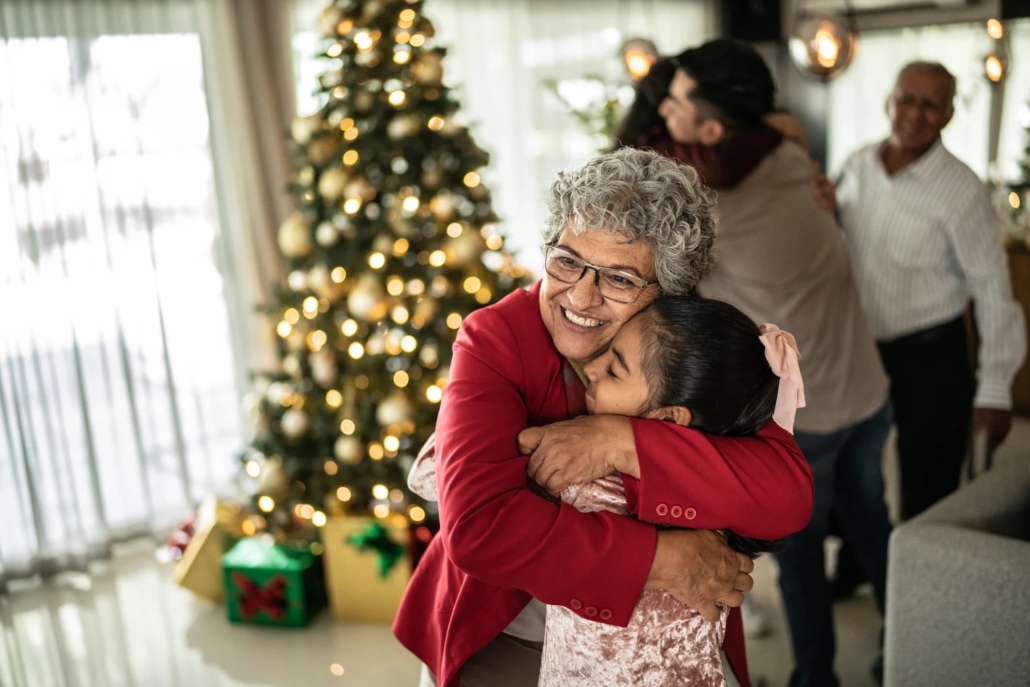Preparing for Christmas
From the family home, to the bach or beach, Christmas means something different to everyone. It’s a time when we come together with people we care about to enjoy eating, drinking and celebrating another year.
The lead up can be busy, with the hustle and bustle of coordinating the day. It may be challenging and many carers might feel anxious about Christmas Day.
Christmas can create lots of new stimulation, unfamiliar environments and a busy day can be tiring or confusing. Read our tips to keep Christmas and the holiday’s calm, relaxed and enjoyable for everyone by planning ahead.
The three main steps to planning a successful Christmas and holidays are:
1) Always consider what the person liked or disliked prior to the onset of dementia
2) Take into consideration how they cope now with people, groups, noise, chaos, changes, going to unfamiliar places etc when planning Christmas and holidays
3) Be flexible and make adjustments for how your person is now
Consider what Christmas means to the person with dementia
If they used to love Christmas, presents, having the family around or going to church then plan to do modified versions of this. Don’t impose something on them you know they dislike.
Keep Christmas events simple
Try not to overwhelm the person living with dementia. Large gatherings, hyped up children rushing around and lots of noise can be overwhelming.
Lower your expectations
Christmas holidays will have to be different now. Let go of perfection.
Think carefully about how to ‘do’ Christmas or a holiday
Is it better for the family to come to you than for you to go somewhere unfamiliar? Should the visits be in small groups for shorter periods of time?
Involve the person in the rituals of Christmas
Hanging decorations on the tree, looking at Christmas lights, listening to Christmas carols, wrapping presents.
Monitor the alcohol intake
People with dementia are more susceptible to the effects of alcohol than in the past, so watch the consumption very carefully, especially if other people are topping up glasses. Avoid excessive alcohol consumption which could lead to arguments or falls later on.
Don’t overdo the present-wrapping
Make them easy for the person with dementia to unwrap so that they aren’t struggling to complete this task in front of others.
Manage the noise
People with dementia often find it difficult to listen to more than one conversation at once. Sit the person at the end of the table or in a quieter room off from the main event so they can escape the noise if they need a break.
Maintain their familiar routines
Try not to change their routine and keep the person orientated regarding the day, the time and what is happening next.
Keep introducing
Remind the person with dementia of the names of family and friends visiting and make sure you introduce everyone clearly (with reference to the relationship) to avoid embarrassment of not remembering names of grandchildren etc.
Reminisce
People with dementia will be able to remember the past in detail and engage in conversation about events in their past so ensure reminiscent topics are built into conversation or old TV programmes are watched.
Enjoy Christmas music
The brain remembers music much better than other things so people living with dementia may enjoy listening to or singing familiar music and family favourites – Christmas carols make the perfect festive accompaniment.
Monitor food intake
Dementia can affect a person’s appetite and they may not want to eat a huge Christmas dinner. Give them a smaller portion and offer second helpings later if they are hungry.
Someone needs to stay sober
If the person with dementia is at someone else’s home they may become distressed or agitated and may need to be taken home early. Make sure someone in the family can be designated driver if need be and hasn’t had anything to drink.
Avoid family arguments
There is enough going on for the person with dementia to cope with on the day.
Enjoy yourself
Of course, one of the most important things is to look after yourself. Taking time out and share the caring with friends or family is important. Have reasonable expectations of what is possible for you and the person living with dementia.
Communicate openly with family about how things are, what you think the person will manage, what help you need etc so the family feel included and understand what’s going on. Ask family and friends to spend a little one-to-one time with the person who has dementia. They often value and benefit from gifts of company more than material gifts.
At Christmas time, consideration, compassion, and simplicity is paramount. Empathy is fundamental when considering people living with dementia, but as the primary carer it is equally important to take time out for you, not just at Christmas but all year round.



